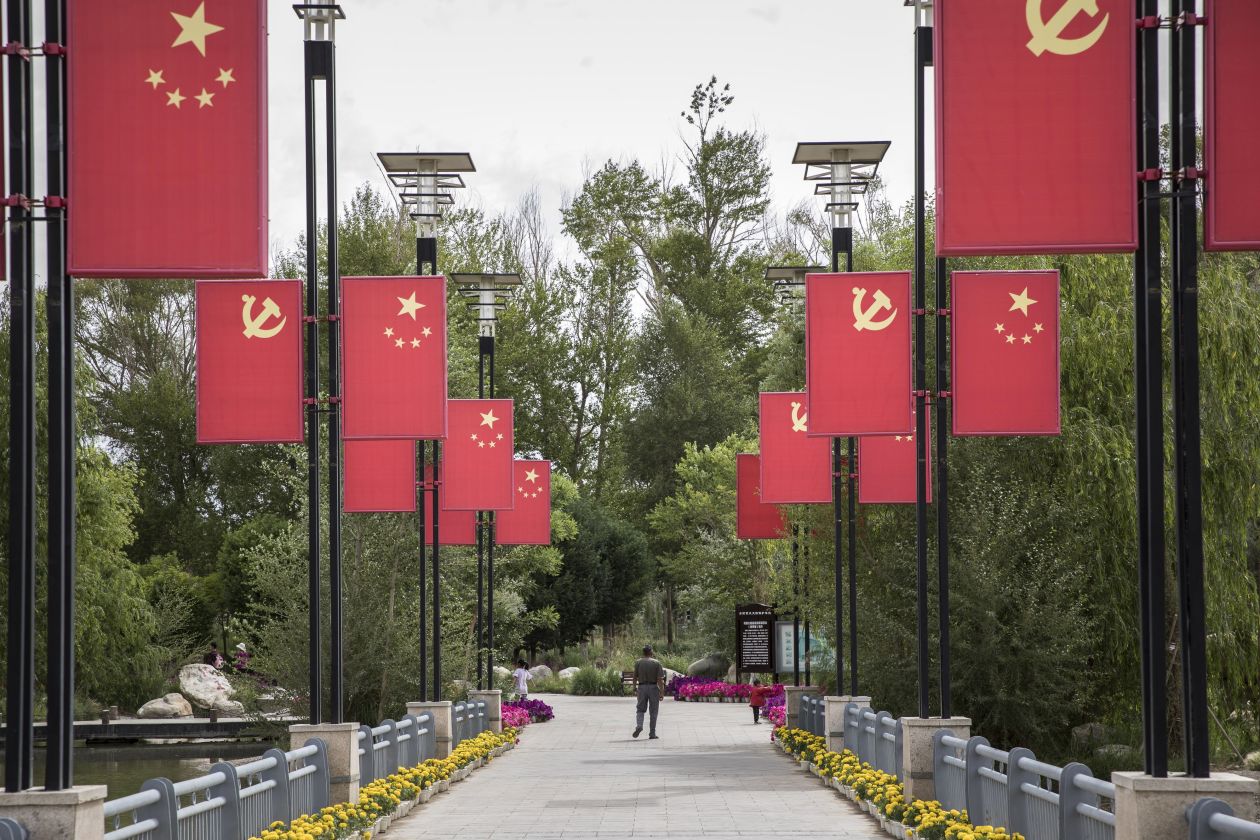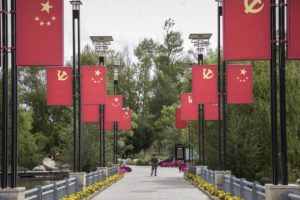China Grows More Repressive

WSJ, 9 October 2018
 By Marco Rubio & Chris Smith – U.S. policy toward China has assumed for decades that trade, investment and other engagement would eventually persuade Beijing to accept and embrace the international order. This optimism was misplaced. The Chinese Communist Party proved resistant to change. As documented in the new 2018 annual report of the bipartisan Congressional-Executive Commission on China, or CECC, the party unflinchingly continues to preserve its monopoly on domestic political power through state-sponsored repression, surveillance, indoctrination and brutality.China’s government and Communist Party have become more repressive in domestic politics, more mercantilist in trade and economic policy, increasingly dismissive of international norms, and more assertive in spreading their model of authoritarian governance globally. These developments pose real challenges to the U.S. and its allies—more so now after President Xi Jinping, who also serves as the Communist Party’s general secretary, demonstrated his near-absolute policy-making authority by achieving the removal of the two-term presidential limit from the Chinese Constitution.
By Marco Rubio & Chris Smith – U.S. policy toward China has assumed for decades that trade, investment and other engagement would eventually persuade Beijing to accept and embrace the international order. This optimism was misplaced. The Chinese Communist Party proved resistant to change. As documented in the new 2018 annual report of the bipartisan Congressional-Executive Commission on China, or CECC, the party unflinchingly continues to preserve its monopoly on domestic political power through state-sponsored repression, surveillance, indoctrination and brutality.China’s government and Communist Party have become more repressive in domestic politics, more mercantilist in trade and economic policy, increasingly dismissive of international norms, and more assertive in spreading their model of authoritarian governance globally. These developments pose real challenges to the U.S. and its allies—more so now after President Xi Jinping, who also serves as the Communist Party’s general secretary, demonstrated his near-absolute policy-making authority by achieving the removal of the two-term presidential limit from the Chinese Constitution.
Some experts have drawn comparisons between Mr. Xi and Mao Zedong, given the personalization and consolidation of power that each achieved. But whereas Mao mobilized the population through mass rallies, an intrusive dossier system and other forms of state control, he did not have the security resources or technologies that are available to Mr. Xi. As detailed in the CECC report, China’s government under Mr. Xi continues to expand social control through a pervasive video-surveillance system and an ambitious “social credit” system.
The continuing crackdown on China’s Christian community—including the burning of Bibles, closing of churches and demolition of crosses—is further evidence that whatever space previously existed for Chinese citizens to worship and live out their faith peacefully has all but disappeared. The United Front Work Department has also assumed management of ethnic affairs, with ominous implications for Xinjiang and Tibet. All of this is consistent with Mr. Xi’s emphasis on “sinicizing” ethnic minorities and religious groups in China.
In turn, China’s broad erosion of freedom has had detrimental consequences for civil society, media freedom, labor rights and due process, as well as the viability of the “one country, two systems” model in Hong Kong. Authorities continue to harass, abuse and detain people, using extralegal “black jails,” and forced psychiatric commitment as well as political re-education camps. Since the sweeping July 2015 crackdown on human-rights lawyers and defenders, authorities have continued to intimidate and silence those willing to defend the politically vulnerable and the persecuted using torture, forced disappearances, imprisonment and other forms of abuse.
China’s domestic repression is directly related to its international aggression and global political influence operations, and therefore connected to vital U.S. national interests. Beijing’s increasingly aggressive government has sought to shape global norms on development, trade, the internet and even human rights in its image. It is actively seeking to use its economic power to influence global perceptions of its authoritarian model.
American policy makers are now re-examining the flawed assumptions that drove U.S.-China relations for decades, as evidenced by Vice President Mike Pence’s major policy speech on China last week. We must recognize that our commitment to the promotion of universal principles, the rule of law and human dignity is the foundation upon which our relationships and partnerships depend.
Mr. Rubio, a Republican, is a U.S. senator from Florida. Mr. Smith, a Republican, represents New Jersey’s Fourth Congressional District. They are, respectively, chairman and co-chairman of the Congressional-Executive Commission on China.
https://www.wsj.com/articles/china-grows-more-repressive-1539125565

